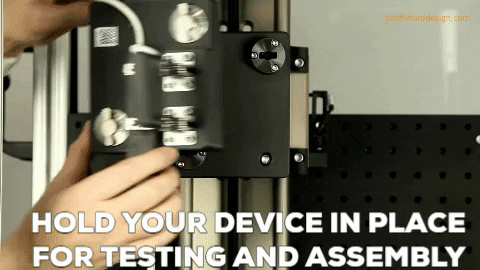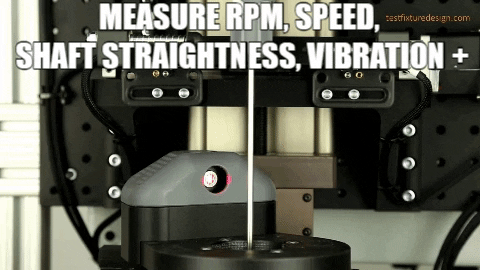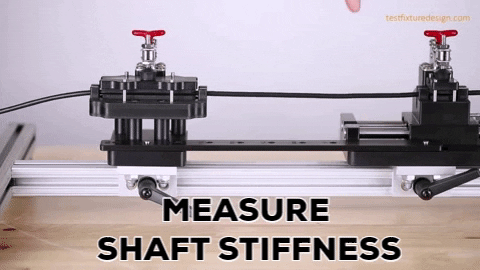Elizabeth Mallett | Why W.L. Gore is An Amazing Engineering (& People) Company

Who is Elizabeth Mallett?
Elizabeth Mallet shares her unique perspective as a worker at a “theory X” company and contrasts those experiences with the “theory Y” environment, which was intentionally developed at Gore.
In this episode, Elizabeth Mallett shares how the enterprise’s principles of supporting and building individuals have led to its success. Moreover, she talks about how progressive companies implement these as a way to improve their culture and performance.
EXPAND TO VIEW EPISODE TRANSCRIPTION
SUMMARY KEYWORDS
gore, people, associates, leader, question, team, manufacturing, conversation, engineer, maslow, work, foster, bit, bill, individual, process, self fulfillment, company, followership, engineers
SPEAKERS
Aaron Moncur, Elizabeth Mallett
Aaron Moncur 00:00
Hey everyone, we’re looking to add a new member to our engineering team. Ideally, we’re looking for a Senior level Mechanical Design Engineer in the Phoenix area, who has experienced designing custom automated machines, equipment and test fixtures. Also, having working experience with controls and system integration is a plus. If you’d like to apply or suggest Someone, please email us at info@testfixturedesign.com. The Being An Engineer podcast is a repository for industry knowledge and a tool through which engineers learn about and connect with relevant companies, technologies, people, resources and opportunities. Enjoy the show.
Elizabeth Mallett 00:41
I’m going to pick my next job based on location and the company and less about the job itself. And so I had been to Flagstaff before that some people ran into a couple of engineers. And then I found out about Gore. And so I started learning about Gore. And I thought this is a company I would want to work for.
Aaron Moncur 01:22
Hello, and welcome to another episode of the Being An Engineer podcast. Our guest today is Elizabeth Mallett, who holds a Bachelor’s degree in Industrial Technology and has worked at WL Gore for over 10 years first as a Process Engineer, then Lead Engineer, Industrial Engineer, Manufacturing Manager and currently as a Supply Chain Manager. Elizabeth, thank you so much for being on the show with us today.
Elizabeth Mallett 01:50
Thanks for having me. I’m happy to be here.
Aaron Moncur 01:52
Good. I’ve been excited for this conversation. We’re we’re going to jump into some questions. But before I do, I wanted to talk a little bit about the company at which you work wl gore because it’s going to be a focus for a lot of our conversation. And I wanted to provide just a little bit of background. I’ve I’ve been curious about gore’s unique organizational and management style for several years. And so I was really thrilled when you agreed to you know, share about those ideas with me on the podcast. For those of you who aren’t familiar with the company WL Gore. It was founded by Bill and ‘Vieve’, Genevieve, I think was was her name, Gore back in 1958 in their basement in Delaware. And Bill was a former DuPont research chemist who he was interested in pursuing market opportunities for fluorocarbon polymers, especially polytetrafluoroethylene, or ptfa, as most of us know it. Gore has gone on to become a market leader in many industries. And while its technical achievements are great, equally impressive to me anyway, and I think to a lot of people is unique and successful organizational culture that Bill Gore created around individuals and small teams within the company. Gore has been described as a place that believes in every individual and encourages experimentation, healthy risk taking personal growth and development and shared ownership for success. A place where in Bill’s own words, we make money and have fun doing self. Gore has innovated in many areas, including high performance fabrics, implantable medical devices, industrial manufacturing components, and aerospace electronics and shares that their innovation is possible because of their focus on teamwork and direct communication rather than chains of command. And for those of you who are frequent listeners of the being an engineer podcast, you’ll know that my ears tingle when I hear phrases such as focus on teamwork, direct communication, and minimizing chains of command. So without further ado, let’s jump into the show. Elizabeth, can you tell us a little bit about why you decided to go into this technical field of engineering? Just give us a little bit about your background?
Elizabeth Mallett 04:03
Yeah. So I grew up in a really large family and everyone had was in like the arts of some kind. My father was a teacher, drama and performing arts for more than 30 years. And so I had a lot of artistic background. And I didn’t even know I was interested in the sciences until I got to college. My major was business at the time. And all of my friends, I was going to Cal Poly in San Luis Obispo. That’s where I grew up. And all my friends were engineers, and I was looking at the classes they were taking and it was so much more interesting than my business. And so I started building more technical and I had a really hard time transitioning colleges at Cal Poly so I couldn’t actually get into the College of Engineering. So I did the most technical degree in the College of Business which was Industrial Technology. And it was actually this a was kind of a blessing in disguise to be honest because it was a really great moment of business and engineering. So why would you take all your physics and math classes, but, but the upper level engineering classes were filled in with manufacturing processes, accounting and finance, which are really helpful as well, how manufacturing processes work, there was a big focus on quality and lean manufacturing. And so I got kind of a little bit of everything came out of school as a manufacturing engineer, most closely aligned with that in the industry at least. So I started out in Aerospace, and Aerospace was a heavy recruiter from Cal Poly. And I was doing liquid rocket engines for Rocketdyne as a Development Manufacturing Engineer, and I loved it. I really thought I had my dream job out of college. I felt like I was working with the smartest people I have ever worked with in my life. I won’t say still to this date, because that might incredible work. I was solving difficult problems.
Aaron Moncur 06:09
I thought like, what kind of problems were you solving?
Elizabeth Mallett 06:12
How to put stuff together? I mean, I was doing less design, I was a manufacturing engineer. So it was really taking the design engineers design and trying to and making it. Yeah, cost, right. So from the time the raw material hit the dock to the time that my sub assembly went to the next sub assembly, I was doing the main, the main injector. So my main injector mated with the main combustion chamber. And so I did the entire injector.
Aaron Moncur 06:39
That’s so valuable to be able to start your engineering career in manufacturing, right, start kind of start at the end, see how everything’s made, and figure that out? And then go, I don’t know up the chain, so to speak into the design portion of engineering.
Elizabeth Mallett 06:53
Yeah, yeah, I love I love manufacturing still to this day. But the recession hit, right. So space exploration was a big passion of mine. And I was very much I mean, I was very excited about space exploration, I used to want to be an astronaut, I was just I’m, you have to have like a master’s degree or PhD, for the most part, and I’m not an academic, I am really good at working. I’m not as good at school. And so I really latched on to this manufacturing environment. And I and I’ve loved it ever since. But when the recession hit, I moved around to a defense contract, because our contract was getting canceled, you know, we were part of project constellation, which was Congress’s, we’re going back to the moon stab, you know, and that got all canceled when we were, you know, when the government made some different decisions, right. And so, I found myself not liking my job as much. And I had never really liked where I lived. And so I thought myself, I’m going to go find I’m going to pick my next job based on location, and the company and less about the job itself. And so I had been to Flagstaff before that some people ran into a couple of engineers. And then I found out about Gore. And so I started learning about Gore. And I thought, this is a company I would want to work for. I always tell people that out of college, I felt like I had my dream job. I loved what I did. But I didn’t necessarily like who I did it for I didn’t feel valued as an individual. And so at Gore, I actually had the kind of opposite experience where when I joined, or it was really different, it was difficult, because it wasn’t the fast pace of aerospace that I had experienced the 60 hours a week, the constant change. It was more like, we’re really invested in you as an individual and learning and growing and progressing and contributing continually and less about in the moment, how are you doing right this second. And so it was a it was an adjustment for me to go from. I also had started in commercial manufacturing, at Gore. And that was an adjustment from development, you know, going from designing something, designing a manufacturing system, to really just kind of keeping it going, making procedure changes, working with non conforming product, things like that. That’s just a very different mindset. So I got into technical and to this field, somewhat by osmosis being in being exposed to other engineers really desiring that. And then I really wanted to work in the private industry after having experienced what the public industry was like, or the government industry was like having changed with elections and with you know.
Aaron Moncur 10:00
Yeah, So, Perfect segue into the first question about where I wanted to ask you, which is, tell me about the word ‘associate’. What does an ‘associate’ mean at Gore?
Elizabeth Mallett 10:16
So my first experience with associate was I, just my first week at Gore, and I needed to call ITAC, you know, our IT department. And I, I called them, and I, and they asked me what my name was. And I was like, you my name? Don’t you want to know, my like my ID number? I know. And it was, I felt like I could hit this brick wall. I was going along. And at my last company, I wasn’t number. I was, that’s, that’s my number. Oh, my goodness, first thing I thought I that was my first experiences like feeling like an associate. Like I’m a person. I’m not..
Aaron Moncur 11:01
Wow
Elizabeth Mallett 11:02
..a number. And even it seems to care. Hey, what’s your name? My name just as easy as a number. And maybe because it’s a smaller company? I’m not sure. But I’m the it was that little thing that really turned me on to, oh, well, I’m a person, I’m not a number.
Aaron Moncur 11:20
That’s fantastic. I read that one of the definitions, or maybe I don’t know if the formal definition that gore publishes of the associate is a trusted steward of Gore’s business. And that that aligns just exactly with what you just said, people, they want to know who you are, you’re not just a number, for a person that that people trust. They’re the next term sponsor what tell me about sponsored what what our sponsors at Gore.
Elizabeth Mallett 11:49
So sponsors, sponsors, or everybody has a sponsor. And when you first come, you are assigned a sponsor. So you’re given one your first day and you meet them. And they’re the ones who take you around to meet everybody and show you where the bathrooms are. And my sponsor actually really went the extra mile and helped me get to know the community as well, like, what dentists do you go to, I was new to Flagstaff. And so grocery shopping, and they, and I wasn’t asking these questions, they were just, you know, kind of freely offering these up. And they were a really good resource for getting to know the company, the community, and then any questions I had with my job I could ask them about. And so they weren’t, they weren’t responsible for my performance. So it was, it’s a really easy conversation to, hey, I need help with, I don’t know how to look this thing up in a quality system or something. And that’s kind of how a starting sponsor starts out is with those types of things, getting to know your job and how the company works. But then it really grows into development. So with what you want to be when you grow up, which I still say, even though I there are still things I want to learn how to do. And so I you have the freedom to pick your sponsor. And so after the first, I think it was two or three years, I got a new sponsor. So you kind of break up with one sponsor, I’m looking for these other things. And so you go find a different one. And sometimes that can be an awkward conversation, but it’s really, okay, everyone wants the best for you. And so if, if you feel like you’re, you’re done with them being your sponsor, and you want to move on to somebody else, that’s totally fine. And the conversation usually starts out with, what are you looking for in a sponsor? Like, what can I help you with, that you think I can help you with? Like, that’s, that’s the very first conversation I tend to have with my sponsor, and then the people that I sponsor, which we call sponsees. So what are you looking for in your development? And how do you think I can help you so we’re kind of on the same page. And they can help find opportunities or help know what different classes to take that might help you in your development. But it’s really a I found it to be really helpful. To be honest, it wasn’t that different from my previous company. I had a mentor at my previous company, and they served very similar. So I don’t know how unique I think sponsorship is pretty unique to Gore, because everybody has one I think maybe I just got lucky at my last job with having a really good mentor.
Aaron Moncur 14:34
Yeah, that’s I have gone to a few different churches over the years. Well, same church, but but different areas. And it’s always taken me. I’m not a super gregarious person by nature. So it’s probably you know, mostly on me, but I feel like it’s always taken me. I don’t know six months or up to a year to feel like I had friends in these new areas. And it almost seems to me like having this odd Automatic sponsor, when you start at gore is like an automatic friend right away that you can, you know, ask questions and someone you can trust who will help you, that must have been so helpful, especially having moved there. And you know, not really knowing the area and not knowing any other people
Elizabeth Mallett 15:17
who is really helpful. And we shared an office. So I could just like turn around and say, Oh, hey, I was looking for this other thing at the grocery store, and I couldn’t find it. Where do you Where do you get your Asian food? Here? I have tons of it, like Steph has done so?
Aaron Moncur 15:36
Well, let’s see, I pulled a few different quotes from from gore’s website that I wanted to talk about a little bit. So there are a series of them, I’ll read each one. And then maybe we can have a short conversation about each. The first one is each of us makes commitments that help drive the business. And we work together in our lattice communications structure. In this structure, we collaborate and build connections without the constraints of traditional chains of command. So can you tell me a little bit about this lattice structure, lattice communications structure? What is that? And how does it foster effective communication?
Elizabeth Mallett 16:13
Yeah, so this actually comes really naturally to me. And as you probably have experienced for yourself, sometimes it can be hard to explain things that come naturally. But the lattice is, it’s basically saying, you can talk to anybody at any time and ask any question and challenge in any way. Now, I tend to have a personality like that anyways. So even if there was a structure, I don’t think I would do very well at it. I probably went outside of it at my previous, my previous job, it was frustrating, but so I can ask anybody any question is really what that is. There’s no..
Aaron Moncur 16:51
Oh, and ask the CEO a question.
Elizabeth Mallett 16:53
I haven’t heard of. I have emailed the CEO before. Yes. Absolutely.
Aaron Moncur 16:58
Did you get a response?
Elizabeth Mallett 16:59
Yes. Yeah. I have, I’ve stopped in the office that we have a, there’s the CIO, gore has, you know, these three different divisions, and there’s a leader for each division, that kind of make up this enterprise team. And I stopped by our divisional leaders office, I’ll stop by and say, Hey, how you doing that all stuff, I just say hi, knowing knowing who each other are, and they care about the individual. And so you can really ask any question. At any time, I’ve asked lots of questions to we have these, these leadership roundtables where the CEO used to come and, and chat with people, then you could just go and ask any question you wanted.
Aaron Moncur 17:46
That’s fantastic. So the lattice communication structure is really justGore’s way of telling team members that we want you to communicate with each other we want, we want there to be direct communication between all levels at Gore, and shouldn’t have to go through you know, chains of command just to get a message up the chain, so to speak.
Elizabeth Mallett 18:12
Yeah. And if you’re having a difficult time understanding something, I would ask for clarification at the level that you feel like you need that clarification.
Aaron Moncur 18:21
Nice. I’m very interested in flat organizational structures. And so this is just like candy to me, I’m eating all of this stuff. Okay, but the next thing I read was about an individual who had deeply affected Bill Gore. American Psychologist Abraham Maslow, one of one of the cores, early influences, he believed that people have a hierarchy of needs, and once basic survival needs are met, humans can begin seeking their highest level the desire to learn, grow and reach their full potential. Utilizing Maslow’s theory, we’ll set out to form an enterprise that would provide great opportunity and foster self fulfillment. This set the foundation for the emerging beliefs and principles of the company. How does gore approach the task of ensuring associates basic survival needs are met? And is there like a definition internally for what this means? Exactly? Is it just food, clothing and shelter? Or is there a broader definition at Gore?
Elizabeth Mallett 19:30
So I guess I have two answers for you because well, one of them is more of an example because the pandemic this year, this last year has actually made us has made me think about the very specifics of food clothing housing, in Maslow’s hierarchy. So I’ll tell you in general that Maslow’s Hierarchy serves as a backdrop to approach different situations and so I I’m thinking about the associate it, it causes me to, I guess I’ll stop for a second I so I worked as an engineer for multiple years right now, like I’m a supply chain manager, or they call me a product operations leader. That’s my name is I lead an entire product line. So I have 200. I have like 187 manufacturing associates that are like on the manufacturing floor manufacturing product. I think I have somewhere around 20 engineers, I got quality planning, and I have a whole entire product line. And so as I lead these people, the backdrop in my mind is are their needs being met. Because if their needs are being met, they can contribute more, is kind of how I think about so I don’t know that there’s a broader definition within Gore. It just serves as a as context as a backdrop of how we approach people and situations. It isn’t just about what I need, as their leader, it’s about making sure that they have what they need, so that they so that I can get what I need. Does that make sense? Yeah, that does. Okay. Now, my example with the pandemic, when the pandemic hit, you know, in manufacturing environments, it’s very common for manufacturing associates to have very set hours, you come in at six, you leave at three, you have a 15 minute lunch, it’s like it’s pretty regimented. But toilet paper was running out. And by the time they got to the store, they couldn’t get the things that they needed. And so I did with my team, at least I said, you know, what, if you feel like you need to go get something, I want you to go get it, I don’t want you to feel like your work is keeping you from your basic needs being met. Because it really elevated stress levels, just not. And I would bring, I even brought toilet paper to work one time for people just as a fake because I really to show that I care about where you’re actually at. And if I have that freedom to go to the grocery store, and the shelves were empty that first deal those first few weeks in March or April. And just relieving that stress helped a lot. So they had the freedom to go do those things. Trust me, they would come back and you know, make up that time or whatever it was. And it didn’t actually caused as much of a disruption as I think people would have thought if we if we would have actually stopped and had a conversation about it.
Aaron Moncur 22:32
Yeah, that’s fantastic. So meeting meeting, associates basic needs is of course critical. And then gore also does things to foster self fulfillment, which is higher up on Maslow’s hierarchy of needs. Are these objectives like meeting the basic needs and fostering self fulfillment? Are they performed in any very structured process that one could point to and say, here, this is where I am in the process? Or is it is it less defined and a little bit more organic in nature,
Elizabeth Mallett 23:04
It is less defined and more organic in nature, there are processes that you can point to though, so there’s an exercise that I go through with people that I lead and sponsor and that I have gone through with my sponsor, called called the sweet spot exercise. And you know, that is that’s taking your knowledge and skills, the business need. And I guess knowledge and skills are two different things. an interest I guess, you’re matching these three things, right? And that, for me is self fulfillment. If I’m in my sweet spot, I am using my interests, I’m using my skills and I’m meeting a business needs. And so you can say that is an exercise where we’re doing that thing. But when I sit down to do that exercise, I’m not usually pointing to Maslow’s hierarchy of needs and saying, Okay, let’s get you to the top of the pyramid. Hey, let’s try and make sure that you are feeling like you’re contributing and that you feel like your, what you’re contributing is worthwhile to you as well. I want you to have a good experience with this. If you don’t like what you’re doing, let’s find something else for you to do.
Aaron Moncur 24:15
Yeah,
Elizabeth Mallett 24:16
As quickly as possible.
Aaron Moncur 24:18
Okay, another quote here, Bill Gore was greatly influenced by Douglas McGregor, author of the Human Side of Enterprise. The book, first published in 1960, contributed to Bill’s evolving thinking about management in his own fledgling company. In his book, McGregor described a revolutionary way to manage people and unleash their creative potential theory why they called it this theory noted that individuals will perform at a higher level if they’re allowed to pursue their innate abilities and interests. The fundamental beliefs expressed through three Y, were the foundation upon which our core values and principles were built Theory Y is the antithesis of Theory X, which is the traditional authoritarian approach to management. So, Elizabeth, how would, how would you define Theory X, the traditional authoritarian approach to management? Since it sounds like your previous environment was maybe biased in that direction. At Pratt and Whitney, it showed that maybe you could share, share some real world examples of how the management styles differ.
Elizabeth Mallett 25:24
Yeah. So I feel like the best way to explain things for me is through example, through different examples. So I multiple times in my previous company, Theory X was employed for sure. And that exhibited itself when I would go to the manufacturing floor, maybe my part had been reprioritized. And I was now second or something, and I’m trying to work it out with a machinist. And they’re saying, this is what I was told aAnd I’m saying, this is what I was told. And we literally could not come, we were not allowed to come to a consensus, he had to go to his manager, I had to go to my manager, and our managers had to talk. And I remember that being really frustrating, but that’s just how it was. I do not experience that here. If I had, if we have some kind of disagreement, we can usually kind of, instead of turning it over to those managers, we’re going to bring them into the conversation. And so then we’re still figuring it out. We just have the support from the people that are responsible for our performance involved. And I think that that’s one of the biggest differences is that you don’t turn it over. You just involve more folks. No, I was..
Aaron Moncur 26:38
Just throwing it over the wall. You’re, you’re all involved collaboratively trying to figure it out.
Elizabeth Mallett 26:43
Yeah. And that’s the ideal situation right? Now, I’ll tell you this gets complicated with decision making, because then you bring in more people well, now who’s the decision maker, right. And a lot of time talking, and I’ll tell you like within Gore. I mean, we’re not perfect by any means. In fact, I did a leadership roundtable with some with one of our leadership development development groups, and I was on this panel, and we had this discussion about theory. Why? Because there are actually a lot of associates that are feeling like there’s more Theory X creeping into Gore and Theory Y is creeping out. And why is that? And we talked about how the pandemic has changed things, there’s been more structure, I think, and more change caused some fear. And that I think, has caused people to hold on and want to micromanage a little bit more. And so just being aware of our environment, I think has caused people to stop and think are we still being the company and who we want to be who we were meant to be? Who we were designed, like, organized to be? Or are we straying from that? So this is a conversation we have internally all the time, I’ll tell you, we don’t do it perfectly. But we do the best we can.
Aaron Moncur 27:58
I, it was really interesting to hear you say that we talk a lot, you know, because in my mind, an engineer my linear thinking, I had this fallacy that okay, there’s this process. And as long as you follow this process, ABC, XYZ things turn out well. And you don’t need to talk that much, because you have the process to keep you on the right path. But in reality, I mean, we’re all people, right? Like, we’re not, we’re not perfect as humans. And so it probably does come down to just having a lot of candid conversations. And, and there’s probably no way around that. In fact, maybe I shouldn’t even be using the way around it that kind of indicates that you would want to circumvent it, but no, you, you need to expect to have a lot of human interaction communications, right with real people. And that’s ultimately how you get things worked out. And yeah, it’s gonna take a while. But but that’s part of it. Do you have to go through that?
Elizabeth Mallett 28:56
Absolutely. That’s, that’s a really well said. people interpret the process differently. So no matter what process you have, it can be run differently. And and I observed this as an industrial engineer doing observations on the manufacturing floor. Everyone has a process to follow. But boy, when you watch 30 people do it for eight hours. Everyone does it differently. And so it’s where are those opportunities to come together? Where does it matter that we do it the same? And where does it where is it okay for things to be done differently?
Aaron Moncur 29:26
Yeah. Okay, quick break here tos hare with the listeners that testfixturedesign.com is where you can learn more about how we help medical device engineering teams who need turnkey automated equipment or custom test fixtures to assemble, inspect, characterize or perform verification or validation testing on their devices. And we’re speaking with Elizabeth Mallette. Today, I’m going to give you a couple more quotes that we can talk about. So this next one is when Bill gore worked for DuPont, he occasionally had the opportunity to work on small tasks. forces bill found that he and other employees were able to solve problems more quickly and efficiently when working in small teams. It also allowed him to get to know his fellow employees better and observe innate capabilities that were not obvious to him in a normal work environment. These observations prompted bill to consider building an entire organization where associates were empowered to come together in small teams to get work done. So how, how are teams formed at gore? You know, how long do they stay together? Who decides that a new team needs to be formed? How does that work?
Elizabeth Mallett 30:35
So that’s a really good question. And there is some structure and then there is some freedom. And the structure comes in, like the product line. So I have a team, a production team, and there are manufacturing associates and engineers and those teams are formed probably how most teams are formed, when when there’s an opening, you’re posting for it, people are going for that position, you might reach out to certain individuals if you if you want to. There are internal hires, there’s external hires we have, but we have, you know, a mix, we’ve got, you know, college hires, experienced hires, we have a real good mix. And that’s your primary commitment. Now, if we’re solving a problem, let’s say we’re having a material issue, on the floor, let’s say our PTSD, it came out of a thermal cycle, and it looks funny. It I can pull together a team, I can reach out to coretec, I can reach out to like, some different people, maybe they have the expertise, create a small team and solve that problem. Do some root cause analysis, figure out, you know, so. So if you’re part of a team, but if you want to solve problems, you have the freedom to reach out to whoever you need to reach out to to solve your problem. Now, there, we definitely encourage definition of those problems first, so being put on the spot, I probably won’t remember all of them. But there is, there’s a, there’s a project concept form that we have, if you have an answers, Bill gore had four questions. And it was like, what’s the purpose of the project? And I can’t remember all four of them. But I do remember that the last one is Who will you celebrate? Oh, what does success mean? was one of them? How will you celebrate success? because like you said, at the very beginning, this is about making money and having fun doing so. And so when we solve problems we celebrate. When we
Aaron Moncur 32:27
tell tell me more about that. How do you celebrate?
Elizabeth Mallett 32:29
Celebrating our successes is important. And I probably say it more sarcastically. The most often because when we get through something, I might say, “Oh, well celebrate successes”, you know? How do we celebrate successes, we do it with what’s Well, it’s been really difficult with the pandemic, generally it’s been, hey, let’s get together and have lunch, that’s our celebration of successes will be t shirts, or hats or swag of some kind, or gift cards, whatever. Just to show appreciation for people stepping outside, because those people don’t have to help necessarily, right, they’ve got their own commitments, that person that works, maybe even in core technology, they have a primary commitment as well. And they’re stepping outside a little bit maybe to help you.
Aaron Moncur 33:17
Yeah, I had a question about that. So you put together this ad hoc team to help solve a problem identify, you know, root root causes, whatever? And how do you know that the people you pull into your team have time to help with it? Or how, how do they know that they have tied? Like, do you have to? Do you have to talk to other managers and like get buy in not only from the the the technical individual, the staff member, but also from his or her manager sponsor, or however that works. What does that look like?
Elizabeth Mallett 33:53
Well, it depends on the complexity of the problem. And how long do you think it’s going to take to solve so I think the initial conversation when somebody comes to approaches me and asks for help solving a problem, the first question I ask is, what’s your time commitment? How much time do you are you going to be asking of me? And then I do some reflection and say, do I have time for this? Like, just with myself? And I can commit to that, I can make that commit to them? Yep, I can commit to doing 10% for three months or whatever. If it becomes a problem like with, with my leader, if if it starts distracting from me being able to keep my primary commitments, then then I might reach out to someone else’s leader like if I’m noticing, hey, this person, one of my engineers are spending quite a bit of time solving this other problem and they’re not making that a commitment. I might step in and say, hey, you’re not meeting your primary commitment. Can we have a conversation about this? I’m not opposed to you working on this, but just make sure your primary commitments are being taken care of. Because you do when you make that commitment. You’re bought into it. It’s not some internal telling you what to do. It’s you saying I’m going to do this. And so when that stops being the case, when you’re failing at that, or when you’re not meeting your commitment, it’s pretty easy to stop and say, Oh, wait, I’m not meeting what I already said I would do. I’m doing too much. So it leads to this, this particular principle can lead to being spread really thin, because you have a hard time saying no, you say yes to everything. Now, you can’t get anything done. And I know that I’ve been in this in those shoes. I know that I was like, 10% on 10 teams, which is ridiculous. You I mean, look, what can you do with 10% of your time? I think there is a learning curve of learning to say no, and learning to where you really can commit to and what you what you can and cannot actually get done. Because sometimes you think you can get it done in a certain period of time. And then it takes longer, everybody. We know this.
Aaron Moncur 35:52
That does happened once or twice today. So it sounds like, at least in the beginning, associates have a lot of control over their own time. If someone comes to you and says, I would like your help. Being on this team. It’s kind of up to you, at least at first to say, Yeah, I have enough time I can do that. You don’t have to, you know, go to your leader and say, you know, Mr./Mrs. Leader, can I help with this team? You just you just say yes or no, right there?
Elizabeth Mallett 36:22
Yep. And then I think it’s yeah, I think that’s true. I, I have always employed the practice of giving my leaders a courtesy heads up, though, hey, you know, I got this person reached out to me, I’m gonna be working on this, just so you know. But I think that I might do that a little bit, selfishly, to be honest, because during it’s good to, it’s good for your leaders to know how you’re contributing, because that’s how you’re ranked. And that’s how you get paid. We have the contribution and compensation process. And so I want my leaders to know what I’m working on. And where I’m doing well, because that will help me in the end.
Aaron Moncur 36:58
Yeah
Elizabeth Mallett 36:59
I, thanks from them.
Aaron Moncur 37:01
Of course, core value number four here at pipeline is prevent surprises. So I can fully appreciate the utility of letting people know what’s going on. Yeah. Let’s see. Are there specific roles in teams? And how are those defined? Or is it kind of up to each team to determine how they want to work?
Elizabeth Mallett 37:22
Each team can work how they want to work, there are roles defined in as much as like, process engineer is a role and it has a job description. But the types of things that you might do on one team may differ from one team to the next. So there are we do have job descriptions that’s required. regulatory agencies actually care about that. And so our jobs are actually in our product lifecycle management, they have revisions, and they get revved and different regulatory bodies actually care about different things. I mean, China wants to see your resume to make sure that you’re qualified for the job description that you’re working for, like, every regulatory body is a little bit different. So we absolutely have job descriptions and rules. But there aren’t really sharp lines. So we have process engineers and quality engineers, as an example. Quality engineers are focused more on maybe test methods, designing test methods, executing doing more sampling plans. And the process engineer might be more kit, more focused on equipment, maybe equipment validations, or the process itself and less about, like, the quality testing to release the product. But there’s not there aren’t any like really strict line. So if there’s let’s say a non-conformance like an NCR of some kind, who picks it up, it’s not going to be like, oh, only the cubies work on nonconformances because it has to do with quality. There’s not like a fine line. We encourage people to work across lines and, and expose themselves to what they get exposure to things that they’ve they’re interested in doing.
Aaron Moncur 39:09
I see okay. Well, Vieve Gore was quoted as saying, I think one of the most important things to me, and it was to Bill is to bet on a person and you trust that person and you believe in them. And if you do that, I don’t see how you cannot be successful. So, again, contrast in your experience of gore with previous work environments, how does the organization trust individuals in a way that you might not see it other companies and like the FIA have specific examples or stories to share? That would be awesome as well.
Elizabeth Mallett 39:44
This is a good question. I I can think about how the performance process goes and how that was different. So at Rocketdyne, I worked for Pratt and Whitney Rocketdyne and my, you had a performance review every year, and you’ve had annual goals. And I remember my first one with my new manager, she came in and she had them all listed out like these are the your goals for the year. And every manufacturing engineer actually had the same goals, whether you had been here for 40 years, or you were here for one year, you had the same goals. And I remember asking her, is this a conversation? Or is I’m not just supposed to take this? Like, can we have a back and forth, and she just said, No, like, these are the goals. And so I thought, the weirdest thing, because apparently all have the same goals, we’re all doing the same thing. And I, I didn’t feel trusted, I just felt like this is I’m just being kind of told what to do. Like you don’t really care about what I have to offer. And I think the performance and development process that we have at gore ism is quite a bit different. It’s definitely a conversation, your team probably has priorities and goals and what it’s trying to accomplish over the next year. Maybe you’re launching in a new region, you need to ramp your product. That’s and everyone’s aligned to that. But where you contribute to that is a conversation, okay? We’re How can I use your strengths and what you’re really good at what you’re really interested in to accomplish that goal. And I’m going to trust you that you have those skills and abilities and give you the opportunity to succeed there and to show me. So I think that it lets people set their own bar to some extent, which really helps people, in my opinion, rise to the occasion, if you really feel like you have those skills. I have to I’m going to I’m going to trust you. Now. If I will say that I mean with maybe just being human, if someone says they can do something, and they fail once and then they say they could do it again, I probably won’t. I’ll probably have that conversation a little bit differently. If we’re going through, you’re really struggling to actually get that thing done. And you keep saying you can do it. But I’m not really. I think that drives a lot of frank conversations, direct conversations. And my experience has been that people really appreciate a direct conversation as opposed to a beat around the bush and being really fluffy with something.
Aaron Moncur 42:24
Working well together in team environments requires mutual trust and respect to the team members and goehring encourages its associates to build and maintain these relationships. Are there any specific tools that Gore uses to encourage building and maintaining these team relationships?
Elizabeth Mallett 42:45
So I kind of chuckled when you asked that question because it makes me think of moving to Flagstaff from Los Angeles, where LA is this huge place? You know, it is it’s ginormous. So you I commuted 40 minutes in, I didn’t live near anybody that I worked with. And I moved to Flagstaff, and you’re kind of in this remote area, you can basically drive two hours in any direction and not get anywhere. And so I was gonna joke and say, I mean, I guess gore has employed that by putting themselves in a remote location. So..
Aaron Moncur 43:22
You’re forced to get to know people.
Elizabeth Mallett 43:25
I mean, I have like, I’ve been sick on days, and I’ve had to go to the grocery store to get something for being sick, and I will run into another associate. I just wish that I could not run into somebody that I work with sometimes. But it’s a pretty small town and it’s a pretty big employer so you end up so I kind of jokingly say that but that’s a very real thing in Flagstaff, I guess I would have to talk to the folks in Phoenix or in or Becky’s, because to be honest, my team, they spend a lot of time at work together, but they also spend time outside of work together. They play Ultimate Frisbee, their soccer teams. Oh, interesting. With the pandemic, our team just started doing game nights, virtual game nights. And so like Friday, I think they have one next Friday, where we get online and we all play a game together and it’s outside of work time. And so we’re getting to know each other. So that’s that fosters that, that that collaboration and that friendship. And I’ll tell you one more quick example. I joined a team. And I actually had a difficult time with a couple of people. And I remember taking the approach of I need to get to know them as people because I’m I’m having a really tough time working with them. And so I started spending some outside work time with them. It got to know them as people gain that mutual respect and it really helped our working relationship.
Aaron Moncur 44:56
That’s a fantastic example. I’m sure that wasn’t easy. right in the beginning, like, if you’re having trouble working with someone, the last thing you probably want to do is spend more time with them, especially outside of work. But to be able to do that, and then to see, okay, I start to understand who they are as people, I kind of get why, you know, certain behaviors are this way that. That’s, that’s fantastic. And I think it speaks to the culture that gore has developed there, which, I mean, from all accounts truly is an amazing place to work. I was curious, do you think that there are any personality types that would not work well, or would not enjoy the work environment at the door?
Elizabeth Mallett 45:41
Yeah, so. So I’ve been here for 10 years. If you require a lot of direction, you don’t do as well, because whenever we have this conversation a lot It is it is okay to give direction. and I, we have a class actually, that’s called situational leadership. And it matches the situation how you lead and each by situation and where a person might be at, at a certain skill level on a task on a specific task. And there’s different dimensions in there, and you can absolutely give direction. But it is interpreted very often that when I’m giving direction, I feel like I’m micromanaging. And that feels bad in the culture. And so we feel bad doing it. And so it’s something that we struggle with. And so if you require a lot of direction, I think you struggle, the other turnover that I’ve seen, is ones that really want to get something like make a really big change quickly. We struggle with moving things quickly. I think that’s partially due to regulatory environments. But the listeners to this podcast are also in medical, and they are probably also in a regulated environment, right. But I would say, we make, I mean, most of what we make our class three medical devices, and that’s a different bar than maybe a 510K or, or something over the counter, you know. So the regulations are a little bit different. But I think it’s also because of how we make decisions. We do tend to bring more people in, and then we have a really hard time moving forward. You can imagine how that might go. If you have, you know, if you have 10 people in a room, you have a hundred opinions.
Aaron Moncur 47:35
Yeah, yeah. And you start to have need to have conversations about how you have conversations. And yeah, yeah, wait, what are we doing here? What? Yeah, what’s the purpose of this meeting? Well, another area I wanted to talk to you about is something else that’s unique to gore’s process is, is how associates are compensated. And you mentioned this a little bit in passing earlier. I imagine this process doesn’t govern all of an Associates compensation, but at least a part of it is influenced by feedback from other associates. And the idea being the team members are working directly with the associate, those team members will have a more nuanced understanding of how that particular associate contributed to the overall success of the enterprise. As opposed to you know, just just the manager or the leader, someone up. How have you observed the strategy to influence teamwork in interactions between associates is, as well as the overall company health and success?
Elizabeth Mallett 48:45
Well, so our compensation process has evolved a little bit over time. So it used to be that you’re on a list and your list is who’s on your team who’s on your primary commitment team. And that’s who was ranking you? It was just that list. So if there’s 20 people on the list, you’re ranking 20 people. And you’re ranked against, you know, 19 other people. Now, the way that it’s evolved just over the last couple of years is now you can actually pick who ranks you you’re there your input, as we call them. And actually, we’re going through this process right now. So I nominate input is and they’re put into the system. So I’m actually going to get feedback from people that I want to get feedback from not just my team. And interesting, this has helped I think, with getting input from some of those smaller teams that maybe they’ve been working on a divisional project. Maybe there’s a cap of some kind, some kind of corrective action, a divisional corrective action that that they’re working on, but maybe their team doesn’t know that but now they can get that input from other people. So we’re trying to I think, evolve it to make sure that we’re getting all the angles. Now there are review can videos and whatnot, your leadership team reviews all that data to make sure that it doesn’t look skewed or kind of weird does this this is kind of make sense, you definitely do a gut check. And you still go through contribution highlight forms and things like that people will fill out, you have the opportunity or option to fill out a form that says these were my contributions. And this was the impact to the enterprise with that contribution.
Aaron Moncur 50:28
Got it. Got it.
Elizabeth Mallett 50:30
So I think that that fosters, I think it fosters within team. But I think what we’re trying to do, I think that that has been pretty good. I think what we’re trying to do now is like really bring in the whole the whole picture.
Aaron Moncur 50:45
Alright, I’ve got just one or one more question for you one more question here. It’s about the leadership at gore and how do associates move into leadership positions? And also, can you talk a little bit about what followership is?
Elizabeth Mallett 51:03
Yeah. This is kind of a funny question, because I’m reading the Bible. Was it a book? Or was it a podcast, I was listening to as a podcast, I was listening to actually about leadership. I like I eat drink, and sleep leadership books, I love self improvement. Like, I want to be a better leader. And so I was actually, it was, I was listening to a podcast about this recently. And so I’m leaders at Gore. I mean, my first leadership opportunity I was actually asked to do, somebody approached me and said, We’d like we’d like you to lead this team. That was my first like lead engineer. And, and I actually didn’t want to do it, I didn’t think I had leadership abilities. And I thought, I had a lot of conversations with my sponsor, and some other people that I kind of trusted. You know, it’s just a good move for me, am I doing the right thing. And so I tried it, I learned a lot about myself. And then for me, I actually wanted to be an individual contributor for a little bit longer. So I stepped out of leadership for a couple of years, and then went back to it because I felt like I really wanted to round out. Some of myself some of my own experience, I didn’t feel like I had enough experience to lead because I hadn’t done enough or experienced enough. That’s, that was me personally. So I was actually asked to, but for the most part, we identify, we have like a leadership landscape. Every team, I think, kind of does this a little bit differently. But I try with my team to have a there’s not like a structured process. I think, actually, we’re trying to create a structured process divisionally for doing leadership, landscapes, identifying leaders early, and building their capabilities, their leadership abilities. Through these different classes, I actually think that our internal classes that we’ve had our talent, talent development team has created curriculum around leadership development a couple of different times. And every time I’ve been through it, I’ve learned something new. I think it’s been really great for me as a leader. And so you can identify yourself and say, I would like to be a leader, but you also become identified if you have those capabilities. And then you can choose to go that path or not, I mean, I, I have come across folks where they have their natural leaders. And I think that gore has an easy time picking them out, you can kind of see, wow, everyone kind of listens to that person. I think that they’ve got some natural leadership abilities. Let’s foster those abilities and give them opportunities and see how they do. Some people don’t want those opportunities. I have been people’s leaders where I have identified them like you do a really great job, you know, you have this natural leadership. And I’ve had one associates say Actually, I’m not interested in doing that. I hadn’t wanted drama. I just do my job. And so and that’s okay, there’s no hard feelings. I just want to make sure that you know that I see that as your leader and that that opportunity is there for you if you choose to take it.
Aaron Moncur 54:12
And how about followership, what does that mean?
Elizabeth Mallett 54:15
Followership is are people following you are people following your lead? We actually do followership assessments. I’ve actually never done one for somebody, I’ve only had them done for me. So I guess I don’t know how they got when they get the results. I don’t know how they’re actually run. But you. You ask certain us different questions. I’m sure it’s a survey of some kind that goes out and there’s different questions as to gauge followership and followership can be gauged by trust in that individual, by your opinion of the decisions that they’re making. How you feel like they’re leading you and how you’re experiencing them as a leader. So there’s that evidently followership is, is a big deal. It’s really hard to lead if you don’t have followers.
Aaron Moncur 55:05
So that’s it’s a way of the team being able to provide feedback to the leader. Absolutely. Yes. Got it. Very cool. Yeah. Okay. Well, Elizabeth, we are about a time here. And this has been just a fascinating conversation. I am so grateful that you agreed to spend some time talking about this with me. Before I let you go, how can people get a hold of you?
Elizabeth Mallett 55:29
You can find me on LinkedIn, message me on LinkedIn, and I’d be happy to respond. I love talking engineering. It’s just great. Thanks for having me.
Aaron Moncur 55:37
You’re so welcome and thank you again. I’m Aaron Moncur, founder of Pipeline Design, and Engineering. If you liked what you heard today, please leave us a positive review. It really helps other people find the show. To learn how your engineering team can leverage our team’s expertise in developing turnkey custom test fixtures, automated equipment and product design, visit us at testfixturedesign.com. Thanks for listening.
We hope you enjoyed this episode of the Being an Engineer Podcast.
Help us rank as the #1 engineering podcast on Apple and Spotify by leaving a review for us.
Find us under the category: mechanical engineering podcast on Apple Podcasts.
Being an Engineer podcast is a go-to resource and podcast for engineering students on Spotify, too.
Aaron Moncur and Rafael Testai love hearing from their listeners, so feel free to email us, connect on Facebook, Twitter, Instagram, and subscribe on Apple Podcast and Spotify!
About Being An Engineer
The Being An Engineer podcast is brought to you by Pipeline Design & Engineering. Pipeline partners with medical & other device engineering teams who need turnkey equipment such as cycle test machines, custom test fixtures, automation equipment, assembly jigs, inspection stations and more. You can find us on the web at www.teampipeline.us.
You’ve read this far! Therefore, it’s time to turn your headphones up and listen now to this episode to learn all these. Don’t forget to tell your friends who might like this too!














